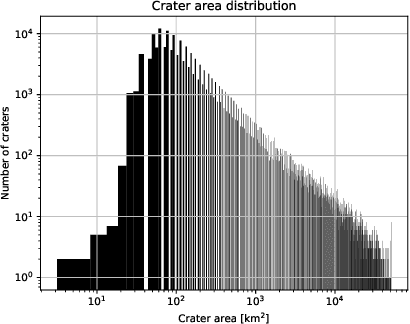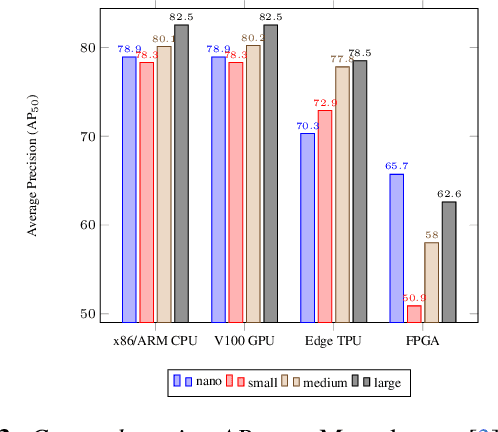George Lentaris
Evaluation of Resource-Efficient Crater Detectors on Embedded Systems
May 27, 2024


Abstract:Real-time analysis of Martian craters is crucial for mission-critical operations, including safe landings and geological exploration. This work leverages the latest breakthroughs for on-the-edge crater detection aboard spacecraft. We rigorously benchmark several YOLO networks using a Mars craters dataset, analyzing their performance on embedded systems with a focus on optimization for low-power devices. We optimize this process for a new wave of cost-effective, commercial-off-the-shelf-based smaller satellites. Implementations on diverse platforms, including Google Coral Edge TPU, AMD Versal SoC VCK190, Nvidia Jetson Nano and Jetson AGX Orin, undergo a detailed trade-off analysis. Our findings identify optimal network-device pairings, enhancing the feasibility of crater detection on resource-constrained hardware and setting a new precedent for efficient and resilient extraterrestrial imaging. Code at: https://github.com/billpsomas/mars_crater_detection.
TF2AIF: Facilitating development and deployment of accelerated AI models on the cloud-edge continuum
Apr 21, 2024Abstract:The B5G/6G evolution relies on connect-compute technologies and highly heterogeneous clusters with HW accelerators, which require specialized coding to be efficiently utilized. The current paper proposes a custom tool for generating multiple SW versions of a certain AI function input in high-level language, e.g., Python TensorFlow, while targeting multiple diverse HW+SW platforms. TF2AIF builds upon disparate tool-flows to create a plethora of relative containers and enable the system orchestrator to deploy the requested function on any peculiar node in the cloud-edge continuum, i.e., to leverage the performance/energy benefits of the underlying HW upon any circumstances. TF2AIF fills an identified gap in today's ecosystem and facilitates research on resource management or automated operations, by demanding minimal time or expertise from users.
 Add to Chrome
Add to Chrome Add to Firefox
Add to Firefox Add to Edge
Add to Edge